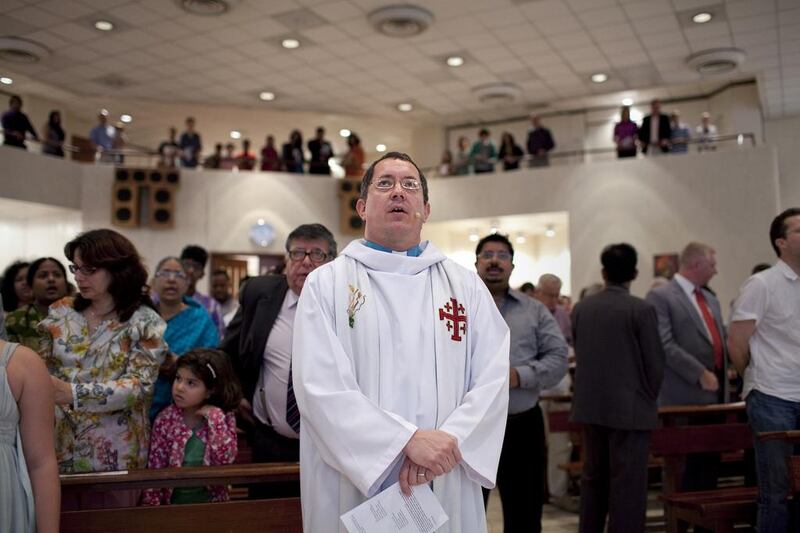Last week, an audience of British Members of Parliament had the opportunity to hear, at first-hand, about an aspect of the UAE that is well-known here but which receives little attention overseas – the country’s firm commitment to the principle of religious tolerance.
The occasion was a talk by Reverend Andrew Thompson, vicar of St Andrew’s Church in Abu Dhabi, who had been invited by the UAE Embassy in London to meet political and other opinion leaders to talk on the topic.
It’s one he is well-equipped to address. Author of Jesus of Arabia, a look at the Christian gospels through the prism of Arab culture, as well as of Christianity in the UAE, Mr Thompson has long worked to promote interfaith dialogue and better understanding between Christians and Muslims.
The MPs, I gather, were somewhat surprised to hear of the UAE’s approach to tolerance. When so much current media coverage of Muslim-Christian relations in the Arab world is focused on the attacks by terrorist groups such as ISIL on the native Arab-Christian inhabitants of Iraq and Syria, their surprise is understandable.
We need more initiatives such as that taken by the embassy in London to arrange for people like Mr Thompson to be invited to talk about the reality of life in the UAE. Perhaps that will help to dispel some of the illusions held about the country abroad, not only in Britain but also elsewhere. The UAE is not just a somewhat exotic holiday destination for millions of tourists to come and soak up a bit of sun and to gawp at landmarks such as the Burj Khalifa – impressive though it is – or to goggle at faux-cultural events such as belly-dancing shows in the desert. (Since when, I might ask, was belly-dancing part of UAE culture?)
Nor is the UAE merely a country whose main feature of interest is the difficulties, often troubling though they may be, that are faced by those at the lower levels of the economic pecking order, be they construction workers or housemaids.
The real picture, of course, is one that’s more diverse, one of a country that has witnessed remarkable economic and social development. At the same time, it has gone through, and continues to go through, a process of huge demographic upheaval, yet has preserved its stability.
It’s a country that has taken on the responsibility of playing a role in the wider world: helping to bring the conflict in the former Yugoslavia to an end, supporting the fight against terrorism in Afghanistan and now in Syria and Iraq, and, at the same time, contributing huge sums to humanitarian relief and to promoting economic development around the world.
The current focus on the Yemen conflict is of enormous significance, but it’s important, too, to ensure other aspects of the UAE’s long record of international engagement are not forgotten.
All this, and more, like the UAE’s support for religious tolerance in a region where this is in short supply, needs, and deserves, more recognition overseas.
That’s not to say that everything in the UAE is perfect. Of course it isn’t: as I’ve noted before, the UAE is a work in progress, continually striving to improve.
There remains much to be done, for example, in addressing labour issues, though a lot has already been achieved, with more on the way. I personally would like to see a change in the way in which the judicial system addresses cases of rape, so that women, whether domestic servants or others, no longer feel afraid to report attacks, in case they are accused of consensual sex outside marriage.
It’s evident though that, for the vast majority of people, the positives far outweigh the negatives. It’s time, perhaps, for a bit more effort in promoting international awareness of those positives, to ensure that the image of the country held abroad better reflects the actual situation at home.
Peter Hellyer is a consultant specialising in the UAE’s history and culture





